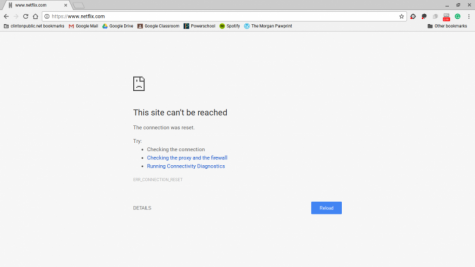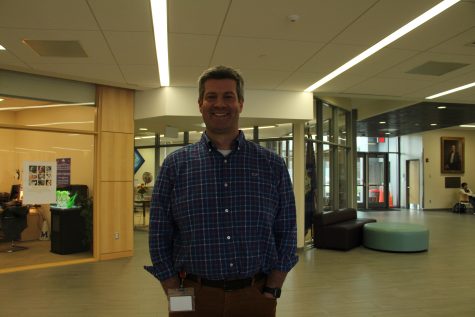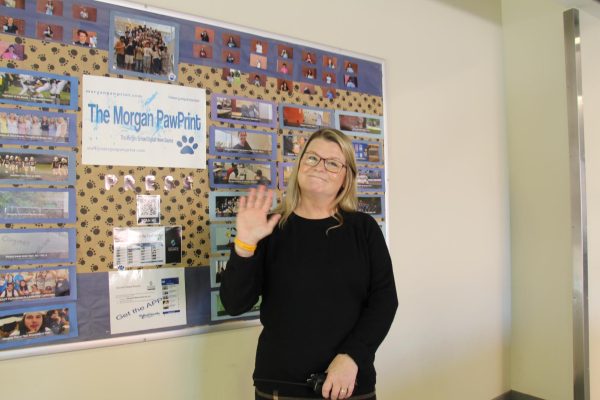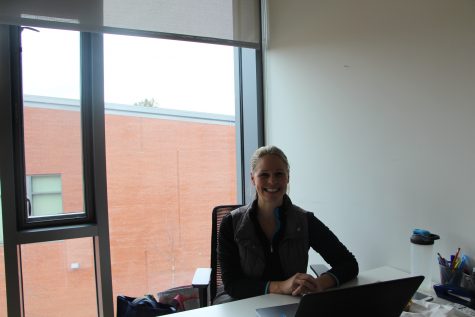At Morgan, students have limited access on the school’s computers. Blocked sites include games, shopping websites, and other sites that are not considered useful for school work. Blocked sites become an issue when students need to do research. High school projects require research, but some research websites are blocked. There have been numerous times when students have needed to access general museum websites only to find them blocked.
Blocking sites can also be extremely useful, not only for teachers who are trying to teach the classroom, but also for the students. Blocking sites such as shopping websites and games can help a student focus in class on what matters, the school work.
Director of Technology Frank Rossi stated that websites are filtered based on their content. There are three filters that Clinton uses. The first filter is the internet service provider CEN (Connecticut Education Network) which filters information before the data gets into the network. With this filter, the State Department of Education filters sites and categories. The next filter is a firewall, which keeps all bad information out of the network system, and protects students and staff from outside forces. With the firewall, the technology department is able to create rules. For example, younger students in the district will not be able to access sites that older students do, as well as teachers. The final filter is through the GoGuardian filtering tool for all web content. This filter works the same as other filters because it also categorizes content. Categories may include games or social media.
Mr. Rossi also states that teachers have found that sites have been blocked based on certain categories that are necessary for research. Websites like the Smithsonian and Metropolitan Museum of Art were blocked because they were categorized as a “travel website.” Filters also cannot distinguish the difference between magazines such as Star or People and scientific magazines such as National Geographic. In other cases, if websites do not fit into a specific category, they are immediately blocked.
When sites need to be unblocked for academic work, the tech department can edit the filters. If CEN is blocking a site, Mr. Rossi sends an email to the state to explain why it is necessary to allow students access to the site.
The technology department also has the ability to block sites. Most of the filters have an “AI” feature that will flag content if it is not aware whether to block the site or not. This content is under review on a daily basis, and decisions are made by the administration on how to proceed.

Principal Keri Hagness explained that teachers do have the ability to get sites unblocked by using the Help Desk. She also explained that some sites aren’t intentionally blocked, especially when it comes to museum sites. Mrs. Hagness is aware of the frustration when it comes to students, and she helps to make sure that sites are unblocked as quickly as possible.
English teacher Brooke Mazzarella expressed that it is very frustrating when she assigns specific websites for students to use that are not blocked on her end, but are blocked for students. As a teacher with more access to sites, she is not aware that certain sites are blocked for students that are not blocked for her. Ms. Mazzarella said that sites that are blocked are articles in The New York Times that students in her class need to complete their AP level work. She also explained that Grammarly is blocked for students, which makes it hard for students to access online editing tools.
Senior Sean Davis stated that there are some sites that obviously need to be blocked, and there is an understanding that there is limited access to the web. Sean stated that there are a lot of questionable sites that are being blocked. He said the Journalism platform Checkology has some blocked videos, which can prevent students from finishing certain lessons.

Health teacher Rachel Lupone stated, “yes, some sites need to be blocked, but when it comes to educational sites, lots of sites are blocked that students should be able to access.” Mrs. Lupone expressed her concerns about the blocked sites. Students aren’t able to access sites like Planned Parenthood, which is needed for one of the topics of research.
Senior Gabbie Franco said in Sociology class, the students had to put their phones at the front of the room in the phone pockets until recently. Now, they have been sitting with their phones because they need access to sites that are blocked on their Chromebooks.
Junior Katie Nguyen stated, “they blocked The New York Times, and I needed that website for a school project. I ended up emailing Mr. Luther, and he emailed Mr. Rossi, and he got it unblocked.”
Junior Josephine Simon said, “I don’t like the memes that pop up when we are blocked from a website. It makes me more upset that I’m not able to access a website.”
Junior Jason Mansfield stated, “I understand why some sites are blocked because of educational purposes, but when teachers give us websites to use, and they don’t work, it gets frustrating.”

